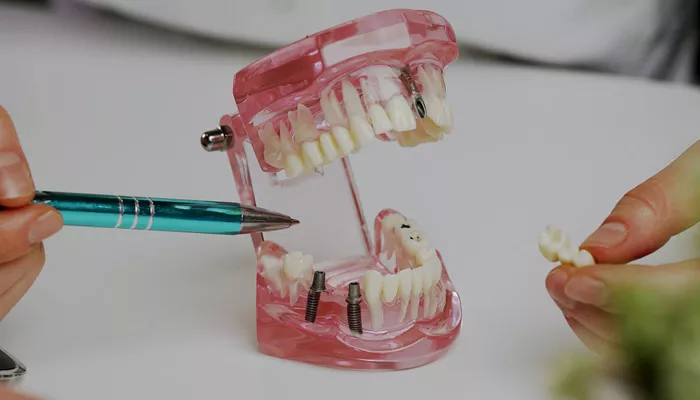Dental implants have become a popular choice for individuals seeking a long-lasting solution to tooth loss. These prosthetic devices not only restore the aesthetic appeal of a smile but also provide functional support similar to natural teeth. In this article, we will delve into the world of dental implants, exploring what they are, why people choose them, the costs associated with dental implants in Kentucky, and the various factors that influence these costs.
What Are Dental Implants?
Dental implants are essentially metal posts, typically made of titanium, that are surgically placed into the jawbone to serve as the roots of missing teeth. They support a dental prosthesis such as a crown, bridge, or denture, providing a stable and natural-looking solution for tooth loss. The success of dental implants relies on a biological process called osseointegration, where the bone integrates with the implant material, creating a strong bond that can last for decades.
Why Do People Choose Dental Implants?
People choose dental implants for several compelling reasons:
Natural Appearance and Function: Dental implants look and feel like natural teeth, allowing individuals to eat, speak, and smile with confidence.
Long-Term Solution: Implants are durable and can last for many years with proper care, making them a cost-effective option in the long run.
Prevents Bone Loss: Unlike dentures, implants stimulate the jawbone, preventing bone loss and maintaining facial structure.
No Damage to Adjacent Teeth: Unlike dental bridges, implants do not require the alteration of neighboring healthy teeth.
Dental Implants Costs in Kentucky
The cost of dental implants in Kentucky varies depending on several factors, including the type of implant, the number of teeth being replaced, and the location within the state. On average, a single traditional dental implant in Kentucky can cost around $5,000, excluding the cost of the crown. However, prices can range from approximately $1,875 for a basic implant to over $6,000 for more complex procedures.
For full-mouth restorations, such as the All-on-4 system, costs can range from $20,000 to $25,000 per arch, totaling $40,000 to $50,000 for a complete smile restoration.
Cost Comparison Across Kentucky Clinics
The cost of dental implants can vary significantly from one clinic to another within Kentucky. It’s important to consider that the lowest price may not always indicate the best value. High-quality care, experienced surgeons, and top-notch materials can raise the price, but they can also ensure the success of the implants.
Here’s a general comparison of implant costs across Kentucky:
| City | Cost Range for Single Implant | Additional Considerations |
| Louisville | $1,500 – $3,500 | High-quality clinics; experienced surgeons. |
| Lexington | $1,700 – $3,200 | Competitive pricing, modern equipment. |
| Bowling Green | $1,800 – $3,400 | Excellent reviews, tailored treatment options. |
| Covington | $1,600 – $3,000 | Offers free consultations and financing options. |
In major cities like Louisville and Lexington, you may find more advanced clinics, which could account for higher prices.
Smaller towns might have lower rates, but you should always check the credentials and experience of the dentist performing the procedure.
Factors Affecting Dental Implant Costs
Several factors can influence the cost of dental implants in Kentucky. Understanding these factors can help you make an informed decision and manage your budget effectively:
Number of Implants Needed: If you’re replacing multiple teeth, the cost will increase. The more implants you require, the higher the overall price.
Additional Procedures: Some patients need bone grafts or sinus lifts if they do not have enough bone density in the jaw.
These procedures can add anywhere from $500 to $3,000 to the total cost.
Location of the Clinic: Dental implants in larger cities like Louisville and Lexington may cost more due to higher overhead costs.
Type of Materials Used: Titanium is the most common material used for dental implants, but some patients opt for ceramic implants, which tend to be more expensive.
Dentist’s Experience and Reputation: Experienced surgeons with a solid track record may charge more for their services, but their expertise can increase the likelihood of successful implants.
Insurance Coverage: While dental insurance often doesn’t cover implants, some plans may cover a portion of the costs, particularly for medically necessary procedures. Always check with your provider.
Financing Options for Dental Implants
Dental implants are often considered an investment in your oral health, but the upfront cost can be daunting for some.
Fortunately, there are several financing options available to help manage the expense:
Payment Plans: Many dental clinics offer in-house financing with monthly payment plans. These plans can help spread out the cost over time, making it more affordable for patients.
Health Savings Accounts (HSAs): If you have an HSA or Flexible Spending Account (FSA), you can use these funds to pay for dental implants, saving on taxes.
CareCredit: CareCredit is a healthcare financing option that offers low-interest or interest-free financing for medical procedures, including dental implants.
Dental Insurance: Although many dental insurance plans do not cover implants, some may provide partial coverage for procedures like bone grafting or crowns. It’s worth reviewing your plan to see if you can offset some of the costs.
Conclusion
Dental implants offer a long-lasting and effective solution for replacing missing teeth, improving both functionality and aesthetics. While the cost of dental implants in Kentucky can vary, understanding the factors that influence pricing can help you find the best solution for your budget. It’s also essential to consider financing options, which can make dental implants more accessible.
Before proceeding with the procedure, it’s important to consult with a reputable dentist and get an estimate based on your specific needs. Dental implants can be an investment in your oral health and quality of life, and with the right planning, you can make this procedure more affordable.

